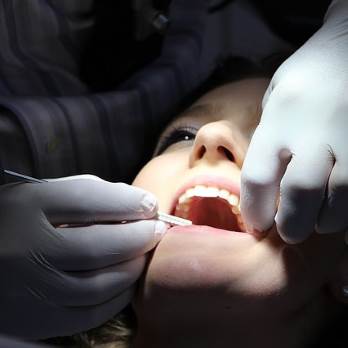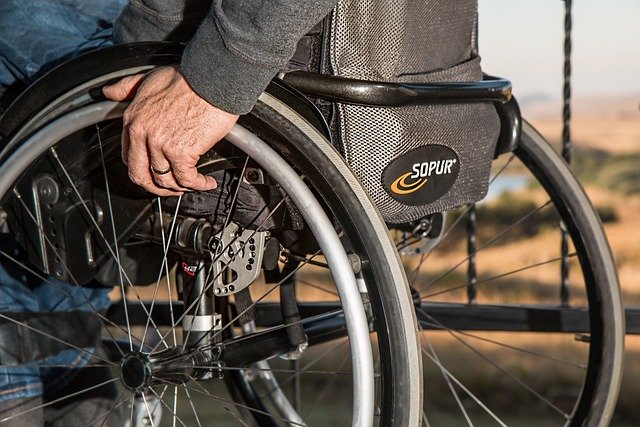Emergency Dental Implants: What to Know About Options and Costs
Dental emergencies can be both painful and distressing, especially when they involve tooth loss or severe damage that may require implants. Emergency dental implants are procedures performed urgently to replace teeth lost through accidents, injuries, or sudden extractions. Unlike standard implant treatments that follow a multi-month timeline, emergency implants often compress the treatment process to address immediate functional and aesthetic concerns while preventing further complications.

Understanding Urgent Dental Implant Procedures Explained
Emergency dental implant procedures differ from standard implant protocols primarily in their timing and approach. In traditional implant dentistry, patients typically wait 3-6 months between tooth extraction and implant placement, allowing for complete healing. However, urgent situations may call for immediate or early placement techniques.
Immediate load implants (sometimes called “same-day implants” or “teeth in a day”) involve placing the implant and attaching a temporary crown during the same appointment. This approach is possible when sufficient bone structure exists and the implant achieves adequate initial stability. Socket preservation techniques may be employed simultaneously to maintain bone volume while the area heals.
Early placement involves inserting the implant within 2-8 weeks after extraction, striking a balance between urgency and allowing for some initial soft tissue healing. Both approaches require careful assessment by experienced specialists who can determine if a patient’s oral conditions support accelerated implant procedures.
Cost Factors for Emergency Dental Implants
Emergency dental implant costs typically exceed standard implant procedures due to several factors. The urgency, potential need for additional procedures, specialized expertise required, and compressed treatment timeline all contribute to higher fees. Understanding these cost drivers can help patients make informed decisions during dental emergencies.
The base price for a single emergency dental implant ranges from $3,000 to $6,500, with multiple factors influencing the final cost. Geographic location significantly impacts pricing, with urban centers and regions with higher costs of living generally charging more. The need for supplemental procedures like bone grafting, sinus lifts, or extractions can add $400-$3,000 to the total. Additionally, the type of restoration placed on the implant—whether a single crown, bridge, or full-arch prosthesis—affects the overall investment.
The materials used also influence costs. Titanium implants typically cost less than newer zirconia options, while restoration materials range from more affordable porcelain-fused-to-metal crowns to premium all-ceramic solutions. These various factors combine to determine the final price tag for emergency implant treatment.
How to Find Qualified Implant Specialists Quickly
When facing a dental emergency requiring implants, finding a qualified specialist promptly is crucial. Start by seeking recommendations from your general dentist, as they often maintain networks of trusted specialists for emergency referrals. Dental schools with graduate prosthodontic or periodontal programs frequently offer emergency services while maintaining high standards of care.
Online directories from professional organizations like the American Academy of Implant Dentistry (AAID) or the International Congress of Oral Implantologists (ICOI) can help locate board-certified implantologists who handle emergency cases. When evaluating potential providers, verify their credentials, including specific training in implant dentistry and experience with emergency protocols.
During your initial consultation, assess how quickly they can see emergency cases, their availability for follow-up care, and their protocols for managing complications. Review their emergency implant portfolio and ask about their success rates specifically with accelerated or immediate-load implant procedures. A qualified emergency implant specialist should clearly explain the risks and benefits of expedited treatment compared to conventional approaches.
Emergency Implant Options and Their Suitability
Not all emergency dental situations are suitable for immediate implant procedures. Factors like infection presence, bone quality and quantity, the patient’s healing capacity, and overall oral health significantly influence treatment planning. Several implant approaches may be considered depending on the specific emergency scenario.
Immediate placement with immediate loading provides the fastest solution but requires excellent bone quality and quantity. Immediate placement with delayed loading offers a compromise, placing the implant right away but waiting to attach the crown until osseointegration occurs (typically 6-12 weeks). Socket preservation with delayed implant placement might be necessary when infection or insufficient bone exists, using bone grafting to prepare the site for future implant placement.
For patients missing multiple teeth in an emergency, options include multiple single implants, implant-supported bridges, or implant-retained dentures. In cases where patients have lost all teeth in an arch, full-arch immediate load protocols (often marketed as “All-on-4” or “Teeth in a Day”) may provide immediate functionality while the permanent restoration is fabricated.
Emergency Dental Implant Providers and Cost Comparison
When seeking emergency dental implant treatment, understanding the providers and associated costs can help inform your decision during a stressful time. The table below compares typical provider types, their services, and associated cost ranges.
| Provider Type | Treatment Options | Average Cost Range | Typical Wait Time |
|---|---|---|---|
| Private Implant Specialists | Full range of emergency implant options including immediate load | $3,500-$6,500 per implant | Same day to 2 days |
| Hospital Dental Departments | Complex trauma cases, medically compromised patients | $4,000-$7,000 per implant | Same day for severe trauma |
| Dental School Graduate Clinics | Comprehensive implant services at reduced rates | $2,000-$4,000 per implant | 1-3 days |
| Corporate Dental Chains | Limited emergency implant options | $2,800-$5,000 per implant | 2-5 days |
| Overseas Dental Tourism | Full-service implant packages | $1,500-$3,000 per implant | Scheduled trips only |
Prices, rates, or cost estimates mentioned in this article are based on the latest available information but may change over time. Independent research is advised before making financial decisions.
Recovery and Follow-up Care for Emergency Implants
Recovery from emergency dental implant procedures requires diligent aftercare to ensure successful integration and long-term function. Immediately following the procedure, patients typically experience swelling, minor bleeding, and discomfort for 3-7 days. Prescribed pain medications and antibiotics must be taken as directed to manage discomfort and prevent infection.
Dietary restrictions are crucial during the initial healing phase, with patients advised to follow a soft food diet for 1-2 weeks and avoid chewing directly on the implant site. Oral hygiene must be maintained carefully around the surgical area using prescribed antimicrobial rinses and gentle brushing techniques. Regular follow-up appointments are more frequent with emergency implants, often scheduled at one week, two weeks, one month, and three months post-surgery to closely monitor integration and address any complications promptly.
Emergency dental implant procedures require a delicate balance between addressing immediate needs and ensuring long-term success. By understanding the available options, associated costs, and how to quickly find qualified specialists, patients can navigate these challenging situations more effectively and achieve successful outcomes despite the urgency of their dental emergency.
This article is for informational purposes only and should not be considered medical advice. Please consult a qualified healthcare professional for personalized guidance and treatment.




